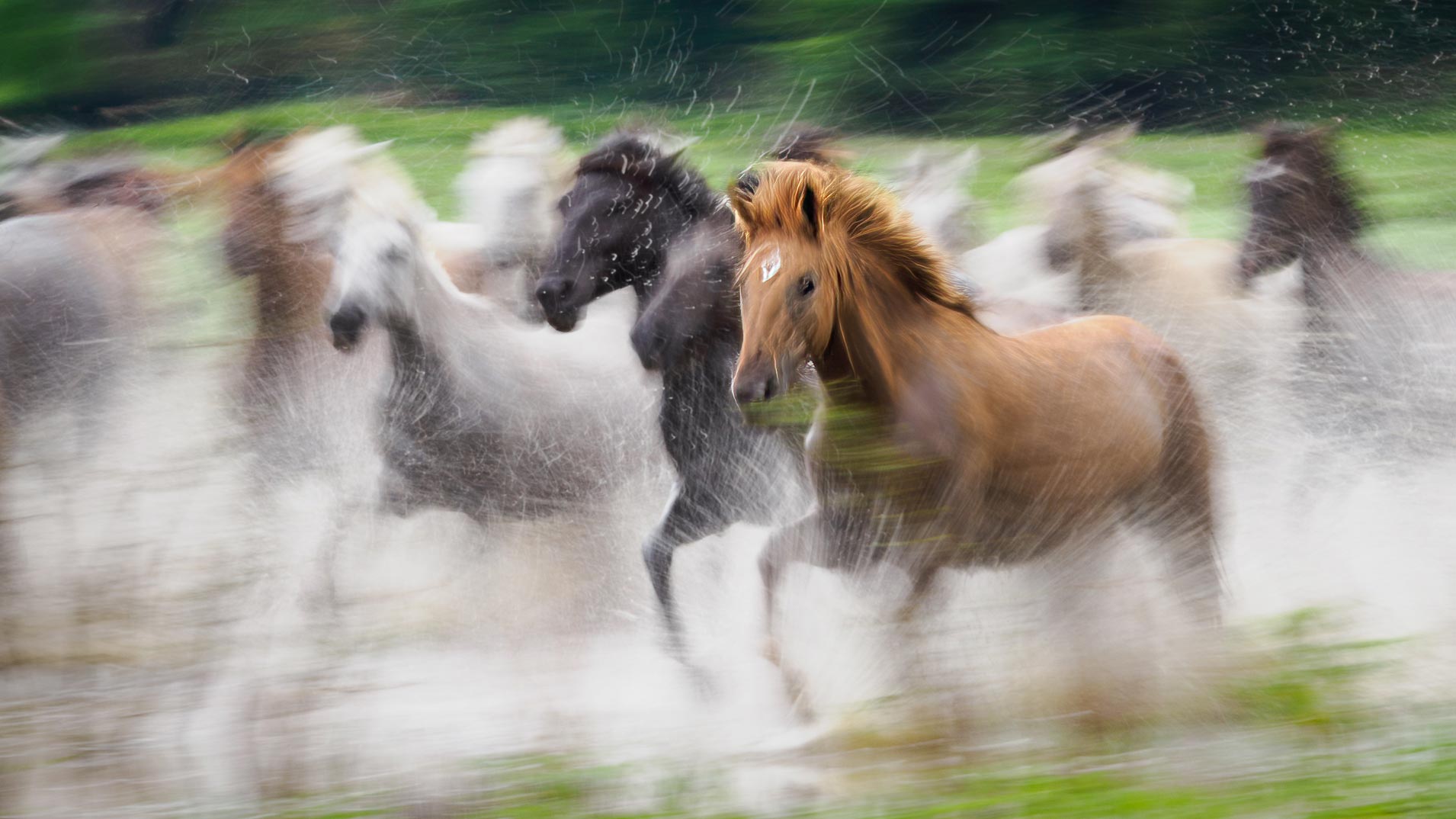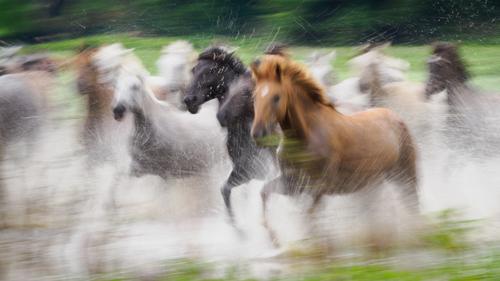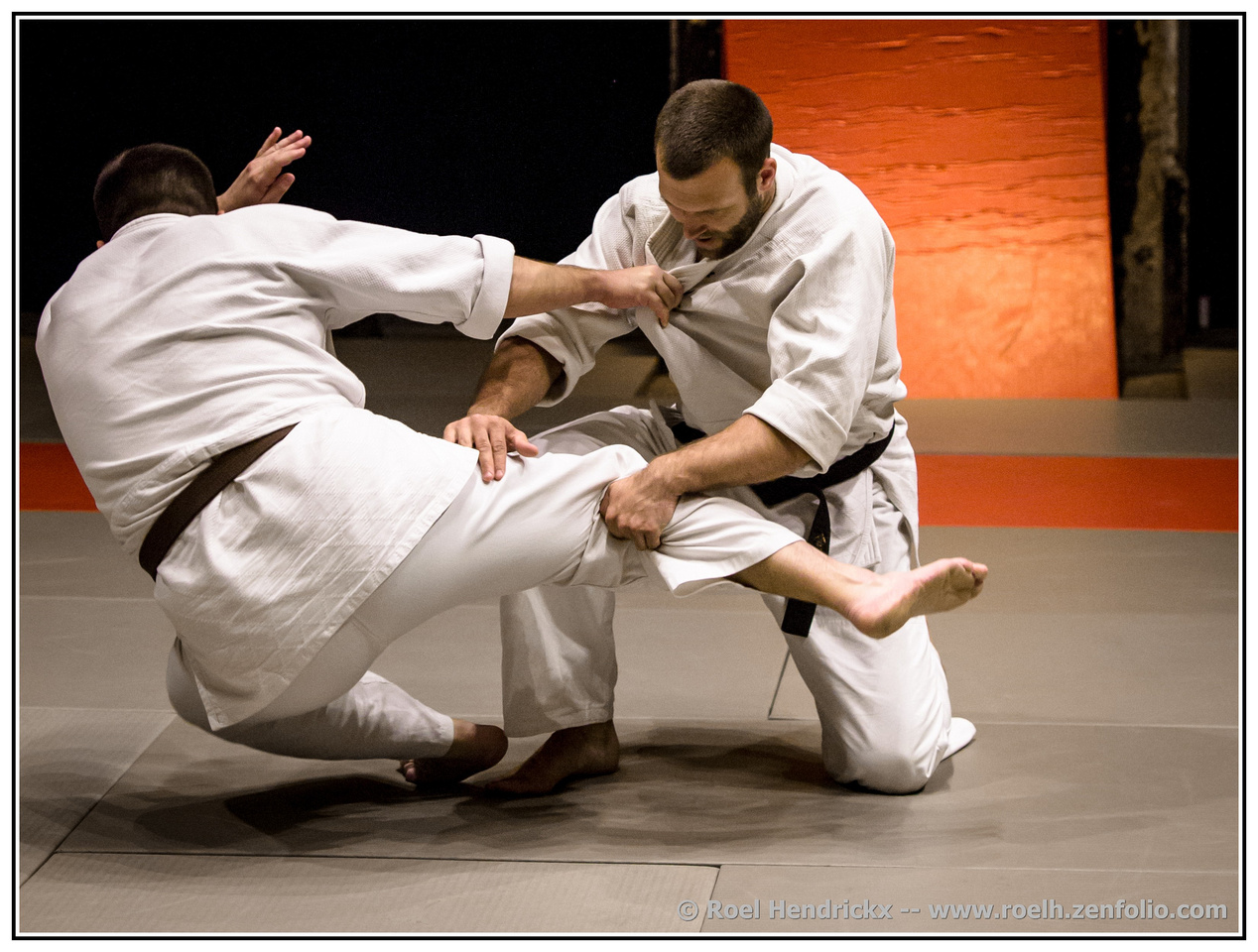This is a sensational photograph but with our yes naturally tending to focus on the sharpest parts of a photo they are left to wander uncomfortably around the image because nothing is sharp. I get the effect you were trying to achieve and you mostly have imho but I need something to "hang" my eyes on in the scene. I think if the leading horse's head was reasonably sharp with the rest as is, the photo would have even more of an impact than it does already.
Anyway, see what you think since you can adjust the sharpness to whatever suits.













